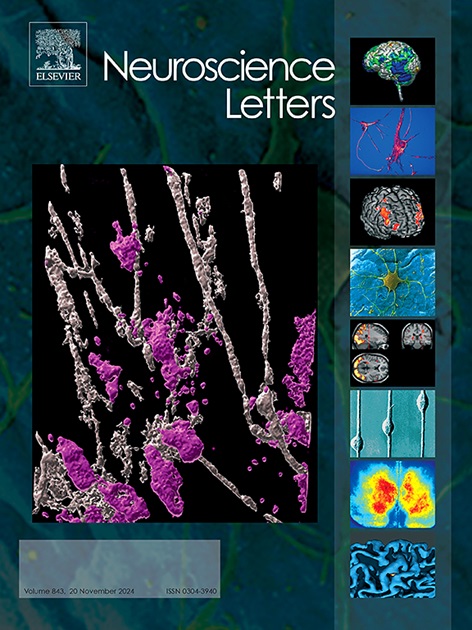Brain biomarker profiles vary with semi-synthetic and grain-based diets in healthy and mTBI mice
IF 2.5
4区 医学
Q3 NEUROSCIENCES
引用次数: 0
Abstract
Across a range of neurological disorders, there is a growing appreciation for how the gut influences brain health, but few ways of monitoring its effects. Although nutrition influences traumatic brain injury (TBI) recovery, its influence on biomarkers—whether as an intervention or confounder—is poorly understood. Beyond specialized diets, standard rodent diets may also affect brain function. Neuron-derived extracellular vesicles (NDEVs) offer a brain-specific complement to circulating biomarkers, but their sensitivity to diet is unknown. In this study, we isolated miRNAs from NDEVs from the serum of healthy and mild TBI (mTBI) mice fed a semi-synthetic or grain-based diet. NDEV miRNAs encoded dietary differences based on injury condition, suggesting that NDEVs are sensitive to dietary changes and may be able to track diet’s effect on TBI recovery. Additionally, we found that diet influenced injury biomarkers, underscoring diet as a confounding variable for NDEV miRNA biomarkers. Together, these findings highlight NDEVs as a promising tool for monitoring the effects of subtle dietary differences on brain health and the importance of diet reporting to improve study reproducibility.
在健康小鼠和mTBI小鼠中,大脑生物标志物谱随半合成饮食和谷物饮食而变化。
在一系列神经系统疾病中,越来越多的人认识到肠道如何影响大脑健康,但很少有方法监测其影响。尽管营养会影响创伤性脑损伤(TBI)的恢复,但其对生物标志物的影响——无论是作为干预手段还是混杂因素——却知之甚少。除了专门的饮食,标准的啮齿动物饮食也可能影响大脑功能。神经元源性细胞外囊泡(NDEVs)为循环生物标志物提供脑特异性补充,但其对饮食的敏感性尚不清楚。在这项研究中,我们从健康和轻度TBI (mTBI)小鼠的血清中分离出NDEVs中的mirna,这些小鼠分别饲喂半合成或谷物为基础的饮食。NDEV miRNAs编码了基于损伤状况的饮食差异,这表明NDEV对饮食变化很敏感,可能能够追踪饮食对TBI恢复的影响。此外,我们发现饮食影响损伤生物标志物,强调饮食是NDEV miRNA生物标志物的混杂变量。总之,这些发现突出了ndev作为一种很有前途的工具来监测细微的饮食差异对大脑健康的影响,以及饮食报告对提高研究可重复性的重要性。
本文章由计算机程序翻译,如有差异,请以英文原文为准。
求助全文
约1分钟内获得全文
求助全文
来源期刊

Neuroscience Letters
医学-神经科学
CiteScore
5.20
自引率
0.00%
发文量
408
审稿时长
50 days
期刊介绍:
Neuroscience Letters is devoted to the rapid publication of short, high-quality papers of interest to the broad community of neuroscientists. Only papers which will make a significant addition to the literature in the field will be published. Papers in all areas of neuroscience - molecular, cellular, developmental, systems, behavioral and cognitive, as well as computational - will be considered for publication. Submission of laboratory investigations that shed light on disease mechanisms is encouraged. Special Issues, edited by Guest Editors to cover new and rapidly-moving areas, will include invited mini-reviews. Occasional mini-reviews in especially timely areas will be considered for publication, without invitation, outside of Special Issues; these un-solicited mini-reviews can be submitted without invitation but must be of very high quality. Clinical studies will also be published if they provide new information about organization or actions of the nervous system, or provide new insights into the neurobiology of disease. NSL does not publish case reports.
 求助内容:
求助内容: 应助结果提醒方式:
应助结果提醒方式:


